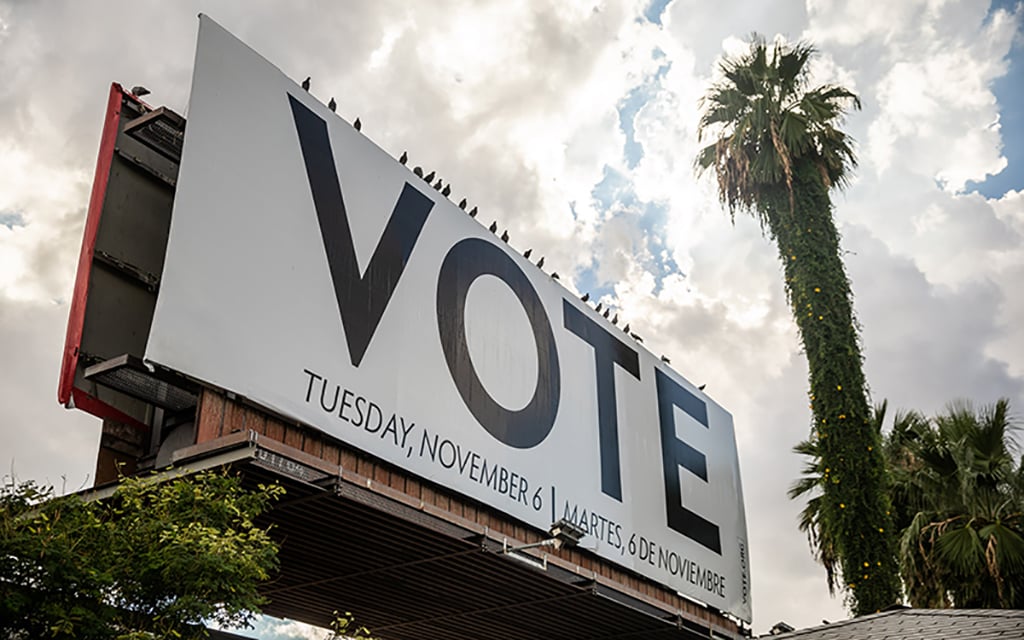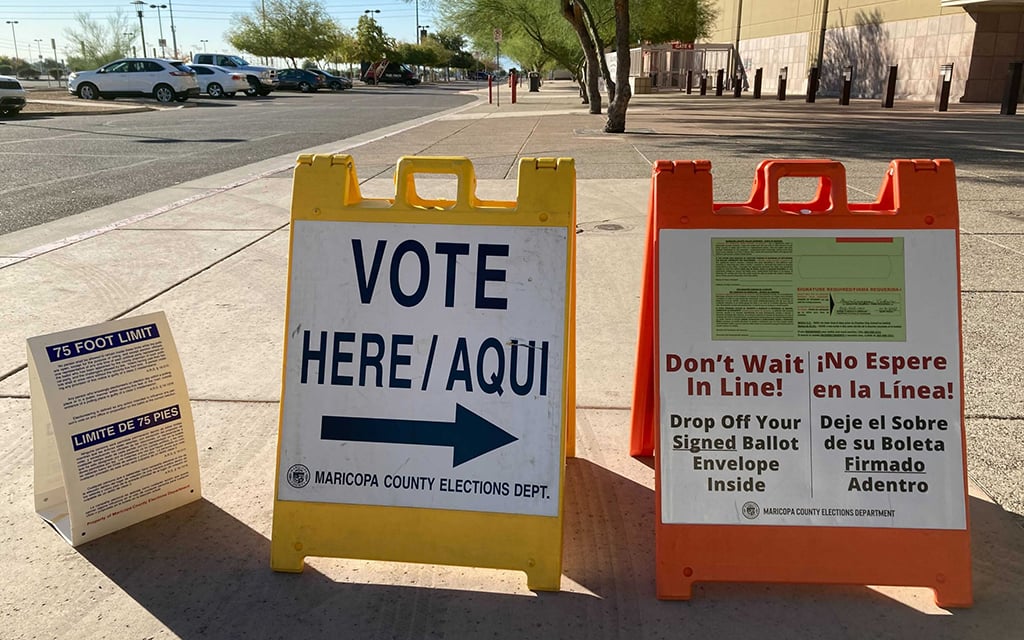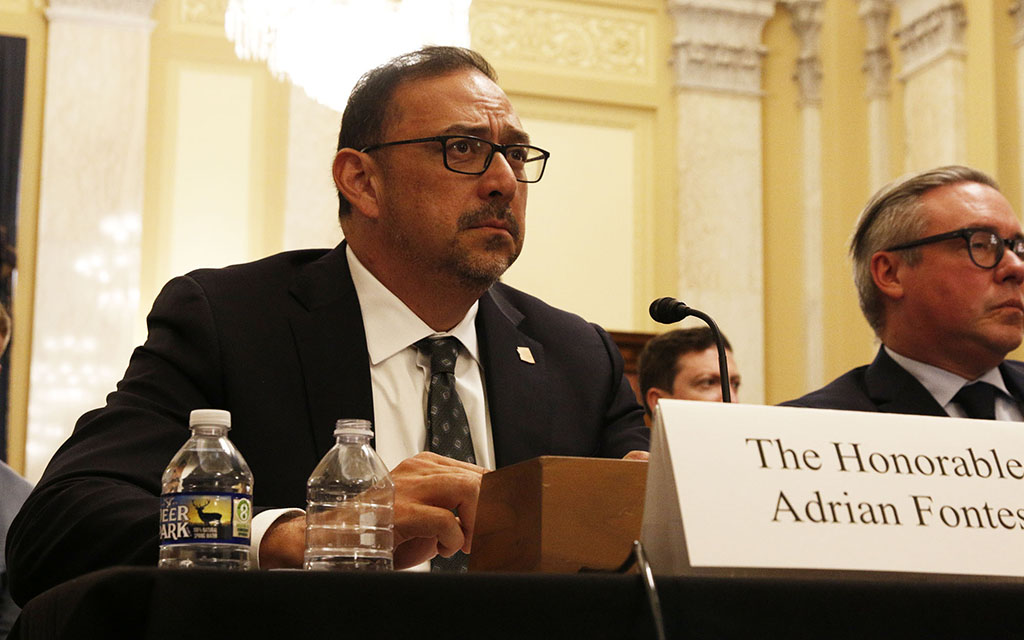
State lawmakers voted to move the primary election up a week, to July 30, to give county election officials additional time to conduct an expected jump in recounts as a result of a 2022 change in the state law. (Photo by Celisse Jones/Cronkite News)
PHOENIX – State lawmakers pushed through a bipartisan, last-minute plan to give election officials more time to cope with expected mandatory recounts this year – but it gives voters and candidates less time in the process.
The bill, approved Thursday and signed Friday by Gov. Katie Hobbs, includes new election security requirements but, most importantly, moves the date of the state primary ahead one week, to July 30.
That has a domino effect on other election dates, moving up voter registration deadlines, the mail-in ballot and early voting schedule and the time in which prospective candidates have to file petition signatures to get on the ballot.
JP Martin, a spokesperson for Arizona Secretary of State Adrian Fontes, said the office is already working to update calendars and “making sure that our election dates line up with the statute and then communicating those changes with the voters is going to be most critical.”
“There’s going to be plenty of notice, right, for folks to understand that Election Day has been moved up,” Martin said Friday.
The changes are needed to fix what Hobbs on Friday called “a really big problem that was created by legislation following conspiracy-theory rabbit holes of the 2020 election.”
She was referring to SB 1008, a 2022 law that increased the margin that triggers a mandatory recount of ballots in a race. Previously, recounts were required when there was a gap of 0.1% or less between candidates, but the new law sets the difference at 0.5%.
Margins of victory in Arizona have narrowed in recent years as the once Republican stronghold has increasingly voted blue. President Joe Biden’s margin of victory over Donald Trump in Arizona was just 0.3% in 2020 – before the new trigger was in place.
Hobbs, a Democrat, won the 2022 gubernatorial election against Republican nominee Kari Lake by just over 17,000 votes, or about 0.7% of the more than 2.5 million ballots cast. Attorney General Kris Mayes won her election by 280 votes, a margin of 0.01%.
Local election officials, faced with an expected increase in recounts this fall, worried that they would not be able to confirm results for primary and general elections in time to meet deadlines to get general election ballots out, and federal deadlines to certify the state’s election results. They said Friday was the latest date that changes could be made to have effect in this election year.
Partisan feuding over the solution pushed a final agreement until Thursday, as Democrats pushed back against Republican proposals that would have added a number of voting restrictions. The GOP plan would also have moved the primary to May in future election years.
“I didn’t see all the language in the original bill. But I know that a lot of folks were trying to make it a Christmas tree and attach a bunch of unrelated items to it. I’m glad that we got to where we did,” Hobbs said at an event in Mesa Friday morning.
Lawmakers on Thursday pushed through what Hobbs called a “compromise bill” that set the July 30 primary date while retaining some GOP proposals.
Those include language to write signature verification requirements for ballots into state law, and reducing the amount of time for voters to “cure” their ballots – or verify a ballot that would otherwise be thrown about because of irregularities. The new law changes the deadline from five business days to five calendar days, but also requires election offices to stay open to cure ballots on the weekends before and after an election.
Hobbs said that – despite a lot of back and forth – that counties will be able to accommodate the signature verification requirements, although “there’s still some concern there.”
“I think that the problem with putting signature verification requirements in statute is just the way it opens up for litigation. And so there were certainly concerns there,” she said.
Martin said Fontes’ office will work through challenges as they arise.
“We’re constantly under litigation and we have to pivot and adapt,” he said.
Overall, Martin said, the new law will “bring the most secure and fair elections that Arizona has seen because we came together to improve election integrity under both Democratic and Republican perspective.”


